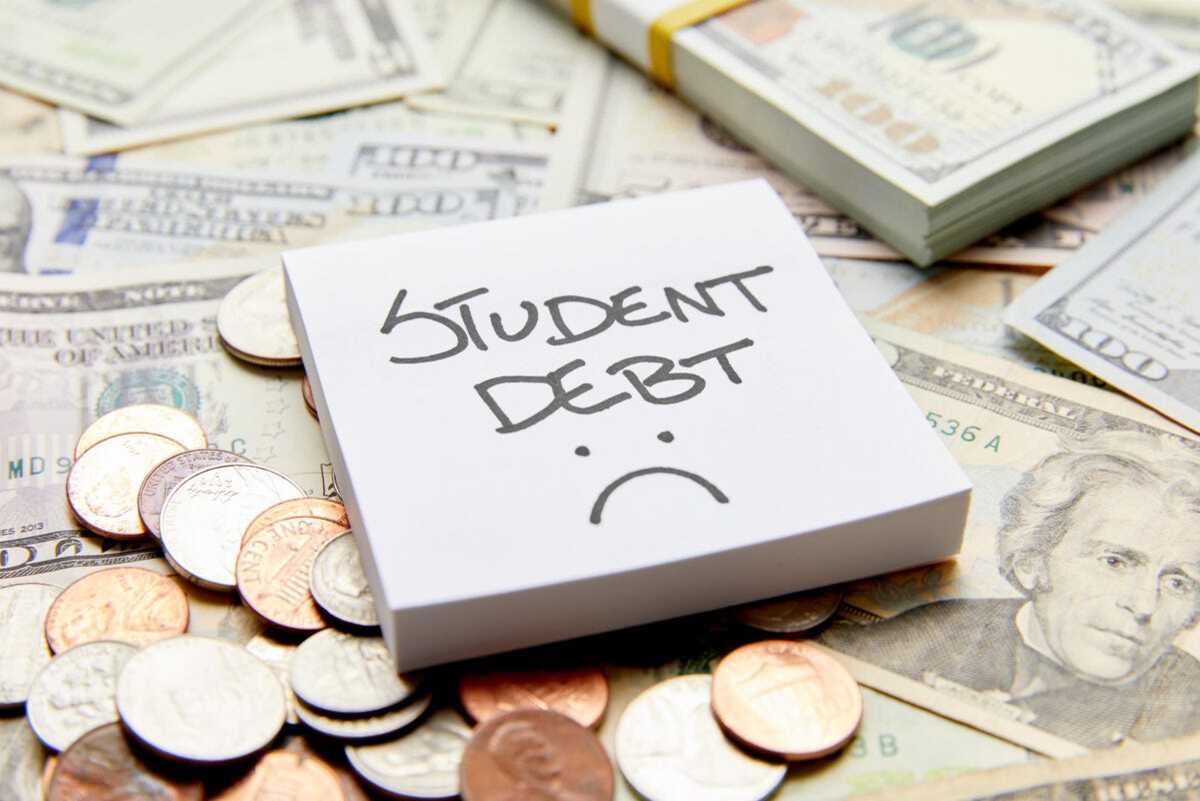
If you are among those who are struggling to pay off their student loan, it is important to know that you are not alone. You don’t have to blame yourself, although the consequences of defaulting on student loans are more serious than you might think.
Want to know what really happens if you default on my student loans? You’ll get your answer here, and then ways to avoid it.
First, missing your student loan payment will hurt your credit score and make it harder for you to borrow money in the future.
But beyond your credit score, the exact repercussions of defaulting on your student loans depend on whether the federal government or a private student loan company owns them.
If you don’t make payments for more than 270 days for federal student loans, your loans are in default. It’s not uncommon to have problems paying off student debt.
According to the most recent figures as of the date of this article , 11.5% of borrowers who started paying back federal student loans from 2013 to 2014 went bankrupt within the next three years.
The average student borrower takes 20 years to pay off their loans, and more than 44 million Americans currently have a total of $1.4 trillion in student debt.
While it may be tempting to avoid student loan repayments altogether, it’s important to continue managing your student loans, even if you can’t pay them off right now, to avoid losing them. Because defaulting on federal loans can have serious consequences.
As much as you fantasize about leaving the country or even faking your own death so you don’t have to pay off your student loans, know that there is a real way out. And that’s what we’ll show you in this article.
The table of contents below will help you navigate through the article with ease.
What Happens If You Don’t Pay Your Student Loans
Everyone seems to be talking about paying or not paying their student loans. And it got me thinking. What happens to people who stop paying their student loans because they can’t afford them? I know many people who still owe their education to the government or to private creditors.
In many ways, defaulting on a student loan has exactly the same consequences as defaulting on a credit card. However, at a key point, it could be much worse. Most student loans are federally guaranteed, and federal authorities have powers that collection agents can only dream of.
It probably won’t be as bad as the gun-toting quarterbacks on your doorstep, but it can be pretty nasty.
If you’ve missed a payment or are having trouble making payments, get in touch immediately and discuss your options with the organization that handles collection and other services for your loan to avoid default.
This is what will happen to you if you are among those students who cannot pay back their student loan:
The government will control your income
Student loans come from the federal government or private lenders like banks. Because government loans offer lower interest rates and more flexible payment options.
Basically, undergraduate students can apply to:
- Up to $5,500 per year in Perkins loans, depending on financial need and other assistance
- $5,500 to $12,500 per year in Subsidized Direct Loans and Unsubsidized Direct Loans
And if you can’t pay the federal government when you do, they’ll always have a way to get their money back.
“The federal government has extraordinary collection powers,” says Jarvis. They can garnish wages without a court order, enact tax refunds, intercept other federal benefits, including Social Security within limits, and prevent borrowers from accessing additional financial assistance to return to school.
You must miss payments for nine months before the federal government starts taking your money, but make sure they do when they find you. Imagine you get your paycheck a week only to find that half of it is gone.
Even bankruptcy, the last resort refuge for debtors over their heads, won’t help you with federal student loans that, like tax debts, are troublesome in bankruptcy. In many cases, you can erase credit card debt and medical bills, but sometimes you can’t erase student loans.
they will sue you
When a student needs more money than the government would give him, he usually turns to private lenders. Americans owe more than $150 billion to private student loan lenders.
Unlike the federal authorities, if you cannot pay your private loans, they must sue you to start the collection process.
If they win (they usually do), they can hire a collection agency to process it. “Third-party collection agencies use aggressive tactics,” says Jarvis.
You can expect calls throughout the day, at home and at work. (If you are harassed by a collection agency for any debt, know your rights.)
Private lenders won’t let you miss payments as long as the government does. “Private student loans have many predetermined triggers, which often include a single late payment,” says Jarvis.
It will lower your credit score
Credit bureaus will not disclose the formula they use to calculate credit scores. “But we know that every late payment report has the potential to lower a credit score, and a bad debt rating will also serve to lower a credit score,” he said. Jarvis said .
In other words, expect an improvement in your score every time you miss a payment.
The lower your credit score, the more you’ll pay (or not be able to get):
- Car insurance
- a mortgage
- car loans
- the credit cards
- cell phone plans
A low credit score can even make you unemployed. One study found that 60% of companies check all or part of applicants’ credit scores.
What Happens If You Don’t Pay Back Federal Student Loans
Federal student loans are often the best option when it comes to funding a degree in part because they offer low interest rates and flexible payment plans.
If you miss a payment on your federal student loans, you have 270 days to make a payment before your debt defaults. When the student’s federal debt is due, the government can confiscate your paycheck, your Social Security check, your federal tax refund ecommerce website design houston, and even your disability benefits.
The Department of Education often works with third-party collection agencies who will collect penalties and fees for non-payment, sometimes up to 18% of your loan balance.
The government is also known to sue borrowers. The Department of Justice reports that over the past two years, more than 3,300 student debtors have been sued for bad debt. In almost all cases, the borrower loses. If the government wins, it could put a lien on your home and even force a sale.
Heather Jarvis , a student loan expert, told Vice that currently “the federal government doesn’t sue that often because it doesn’t have to.” But they will if they think it will give them access to other assets. “
Experts predict that the federal prosecution program will expand in the coming years under the leadership of Secretary of Education Betsy DeVos.


